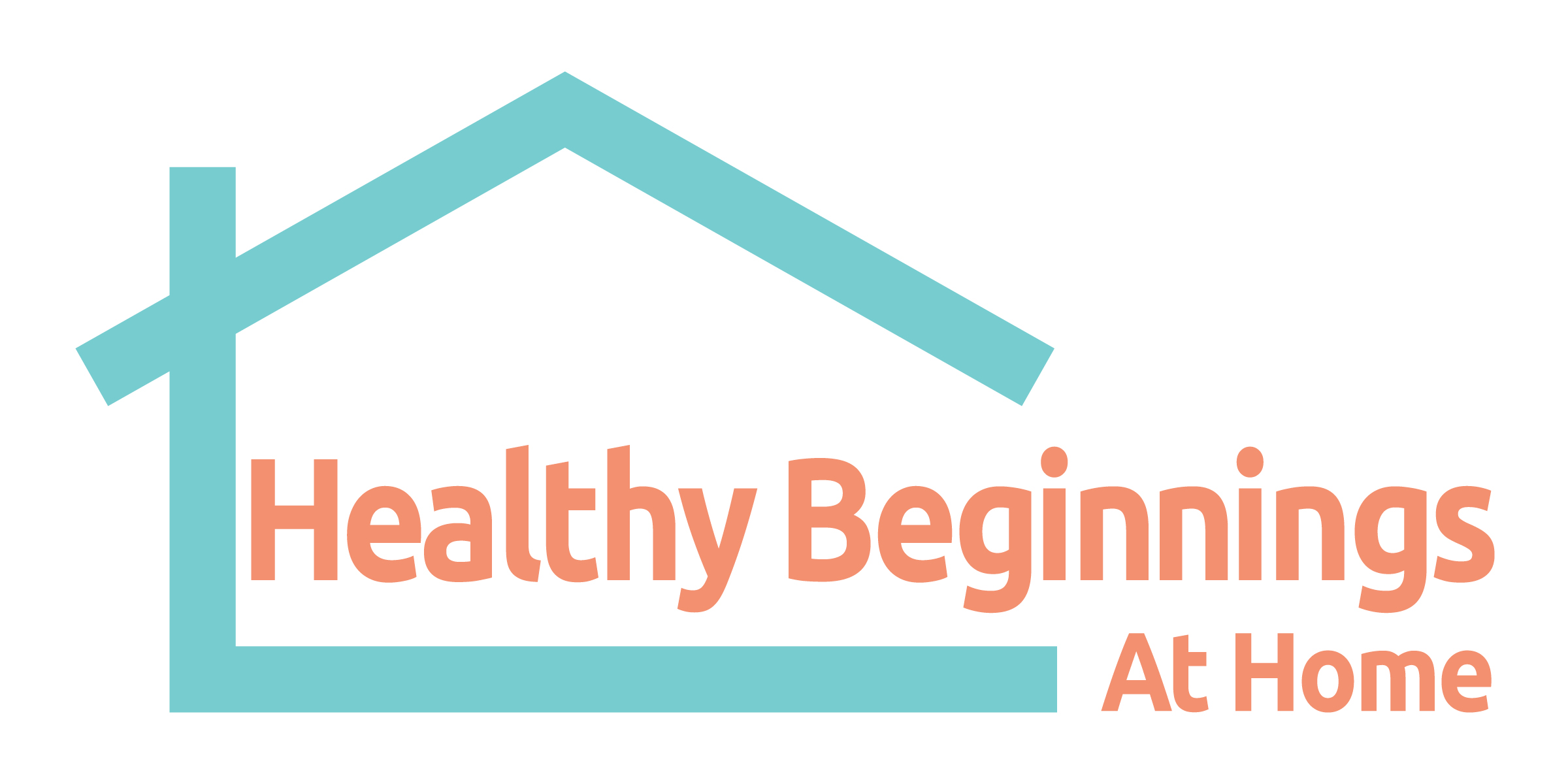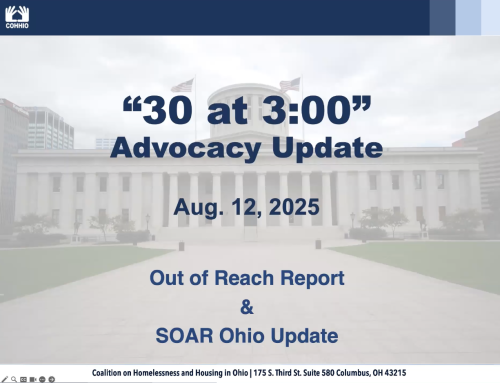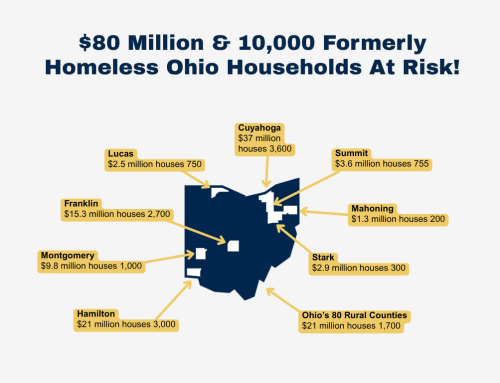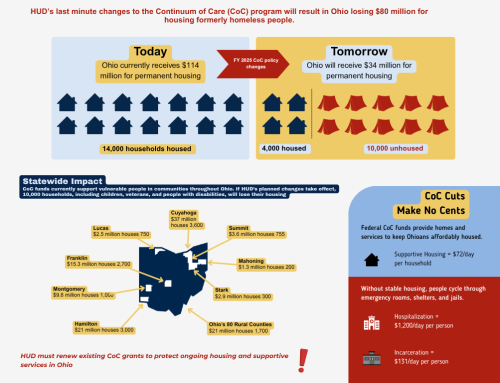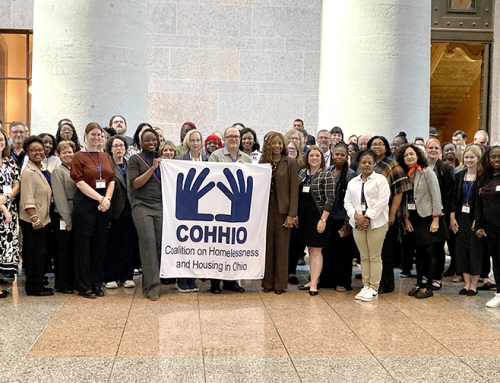Sept. 30, 2022
FOR IMMEDIATE RELEASE
State Invests in Housing to Reduce Infant Mortality
The Coalition on Homelessness and Housing in Ohio applauded the DeWine Administration’s commitment to supporting research on how housing access can improve birth outcomes, stabilize families, and give babies a healthy start in life.
Gov. Mike DeWine announced plans Friday to fund the expansion of Healthy Beginnings at Home (HBAH), which provides short-term housing assistance and stability services to pregnant women at high risk of infant mortality. Gov. DeWine and the Ohio General Assembly previously included $2.25 million in the current state budget to resume HBAH after the initial pilot concluded with extremely promising results. COHHIO has sought additional funding to include enough families in the study to yield scientifically conclusive results.
COHHIO Executive Director Amy Riegel said today’s announcement positions HBAH to become the first large-scale research project of its kind in the U.S.
“While there’s already a lot of evidence showing that housing insecurity has serious negative impacts on human health, there’s no real research on the converse – how much does stable, secure housing improve family health outcomes? We believe Healthy Beginnings 2.0 will demonstrate that housing assistance can reliably reduce infant mortality among Ohio’s most vulnerable families, address racial disparities, and decrease Medicaid spending,” she said.
“And we’re especially pleased that the administration has decided to pursue a Medicaid waiver that could help sustain Healthy Beginnings after the research phase has concluded,” Riegel added.
HBAH 1.0 launched in 2017 in Columbus with funding from the Ohio Housing Finance Agency and was implemented by CelebrateOne, a Columbus-based infant mortality prevention collaborative. With additional support from partnerships with CareSource, Home for Families, and the Columbus Metropolitan Housing Authority, HBAH was introduced as a random control study placing 50 expecting mothers in a group receiving housing assistance, and 50 into a group receiving usual care.
During the initial study, there were no deaths in the housing intervention group and 40 of 51 babies were born full-term at a healthy a birth weight, compared to four fetal deaths and only 24 babies born full-term at healthy birth weights in the usual care group. The average Medicaid claim to deliver babies for women who received housing intervention was only $4,000, compared to $22,000 for those in the usual care group.
HBAH 2.0 is preparing to launch soon with 90 families in Franklin and Summit counties. The additional funding will enable the study to further expand in coming months to a total of 300 families including some in Hamilton and Montgomery counties.
-30-
